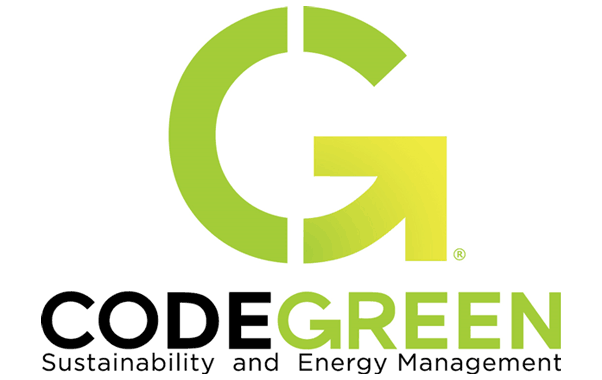Code Green Solutions


For nearly 20 years, Mark Kenber, CEO at The Climate Group, has been pursuing his own clean energy vision: to engage business and policy leaders to commit to the clean energy revolution. And, as the international Paris Summit approaches this December, Mark believes that a Paris Dividend can be realized – and business, policy and international leaders from Climate Week’s podiums agree with him!
Intrigued to learn why? Wondering what actions you can take to deliver on such a 2025 clean energy vision – as students, campuses, clean energy community and business leaders?
Read on…
And join Mark during our #CleanEnergyU live Deep Dive Dialogue, October 7th at 3pm ET 12pm PT – and during our live Tweetathon on October 20/21 starting 12pm ET / 9am PT to ask him your own questions, by posting them now with hashtag #CleanEnergyU/@MarkKenber …
Sue Hall: What’s the significance of the Paris climate summit in December?
Mark Kenber: In December, heads of state and government will gather in Paris for the global COP21 climate talks to attempt to hammer out the final details of a new and binding international climate treaty.
Over the last 20 years we’ve made an incredible amount of progress, but we haven’t made the game-changing transformation we all know is needed.
This year can – and must – be the tipping point for climate action. Paris has the potential to be the moment when the world’s leaders – from all sectors – recognize and embrace the fact that we are inexorably and irreversibly on the road to a prosperous low carbon economy.
SH: So what is this “Paris Dividend” – and why can we secure it this December?
MK: The UNFCCC (United Nations Framework Convention on Climate Change) 2015 Conference of the Parties has enormous potential to deliver a “Paris Dividend” — a charter for cohesive and collaborative action on climate change — but it is contingent on the political will of government leaders.
The Paris Dividend will be the unleashing of billions, and possibly trillions, of dollars of investment into clean energy, low carbon transport and buildings and innovation as a result of the clear sense of direction that a robust agreement at COP 21 will bring. The knock-on effect of this will be both greater long term security against climate impacts and an opportunity to improve livelihoods, increase productivity and drive truly sustainable development.
So the Paris meeting itself is a signal – to the business community, to campuses and the public alike – that there is no turning back.
Innovative business leaders are turning climate change into a valuable opportunity, by supporting a successful outcome at COP21.
There has never been a better time to talk about the benefits of what I call the “clean industrial revolution.” The proof is in the markets.
SH: Why should students, campuses and others act now?
MK: Now is the time for students, campuses and clean energy leaders to make the case for bold action to drive the Paris accord. Evidence that the low-carbon economy is booming is all around us. Wind and solar energy are the fastest growing renewable electricity technologies worldwide, while green bonds issuance soared to almost $37 billion in 2014.
When one in every 142 US jobs last year was in the solar industry and the UK’s green markets are growing faster than the rest of its economy, there can be little doubting the economic power of this alternative clean energy revolution.
SH: You sound optimistic, Mark: why do you think a Paris Dividend can be secured now?
MK: Well, beyond the business case which is compelling in its own right, let’s look at the voices endorsing this Paris Dividend from New York City last week throughout Climate Week NYC. We witnessed a series of leaders spanning Presidents, CEO’s and civil society leaders whose actions and statements are collectively confident that we will deliver on this Paris dividend:
“Pricing carbon—this is the one thing that will change the rationality of how we do business.” – @JimKim_WBG #CWNYC pic.twitter.com/mrslLbTtzj
— World Bank (@WorldBank) September 28, 2015
Things just changed. Forever. 6 million companies want a #climate deal at #COP21. #wemeanit #CWNYC pic.twitter.com/arjusS7Pmg
— Eduardo Goncalves (@eduardo_gonc) September 28, 2015
Panel with BT, IKEA, Philips & Siemens – “we are leaving the past behind” | #CWNYC pic.twitter.com/KjXpKG0HPg
— Jim Walker (@JimWalker99) September 28, 2015
“The stars are more aligned now for a historic universal agreement than they have ever been” -Todd Stern @US_Center #CWNYC
— ClimateWeekNYC (@ClimateWeekNYC) September 28, 2015
“Dealing with climate change is the greatest opportunity of all time. It’s not a threat, a trade-off, it’s an opportunity.” -M Kenber #CWNYC
— ClimateWeekNYC (@ClimateWeekNYC) September 28, 2015
Michael Bloomberg, former Mayor of New York City, for example, stated during his address at the Climate Group Signature Event that it was not widely recognized that, in the US through voluntary action, we have already reduced GHG’s below the level that the 2009 US federal cap and trade program would have mandated!
So we see a series of converging tipping points creating the public pressure and the economics and technology now in place to embrace a clean revolution.
Take just a few of the headlines from Climate Week NYC alone:
So, the clean revolution leaders are already delivering this future. This makes it now inevitable that we take things forward to secure a Paris Dividend.
SH: So what can universities and students contribute?
MK: Universities in the US have already been leading in some pretty spectacular ways. Take a look at their results: the top 15% of ACUPCC reporting campuses have achieved more than a 5% annual average absolute reduction in energy-based GHG emissions. This is the demanding performance threshold under which they can now qualify for carbon credit capital – using the new Campus Clean Energy methodology which Chevrolet pioneered – to help accelerate their campus clean energy performance still further. So Chevy’s campuses are proof that this level of leadership is not only possible but pays handsome returns.
So these results are stunning. Just compare them to the leadership targets that President Obama just announced for the US and for his government agencies, as “openers” for the Paris Summit: government agencies, if they deliver on Obama’s goals, will have averaged 2.35% annual reductions during 2008/25. The broader US economy wide goals are just 1.35% annual average reductions. Leading US campuses? More than 5%!
So campuses and students should not only applaud their recent actions– they should raise the profile of their leadership far more publicly! Campuses are havens of clean energy innovation and leadership in almost every major city in the US. Their leadership can be used to spur others within their community towards similarly challenging goals to up the pace of innovation in US so that its performance can match those which campuses have already proved is possible!
SH: So what’s your personal bottom line, now, 10 weeks ahead of Paris?
MK: Dealing with Climate Change is the greatest opportunity of all time. It’s not a threat, it’s not a trade-off: it’s an opportunity.
So this time, along with 6,000,000 companies, we are confident we can secure a Paris Dividend – the leadership and innovation that will deliver a strong sustainable economy.
—
Want to help deliver the Paris Dividend – at COP and beyond?
Join Mark Kenber live in conversation at #CleanEnergyU during our Deep Dive Dialogue with Mark, October 7 3 ET/12 PT, and the Tweetathon on October 20/21 12-4 ET to ask him your questions! He’ll respond to explore how we can secure a Paris Dividend – building on everyone’s actions at COP and beyond!
Cross link your #CleanEnergyU post to his @MarkKenber twitter handle to get into conversation with him! Questions/comments/reflections are all welcome.
Looking forward to hearing from you all again at #CleanEnergyU!